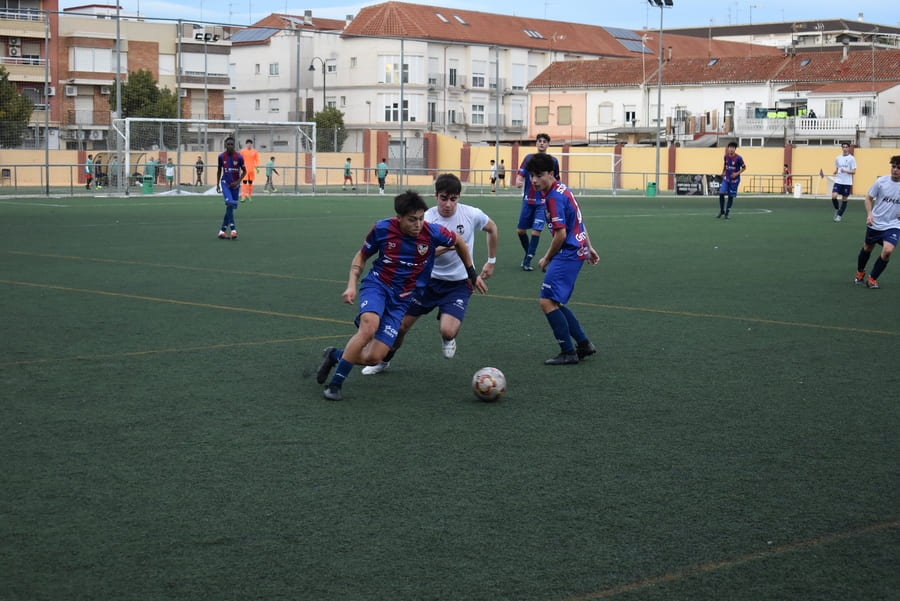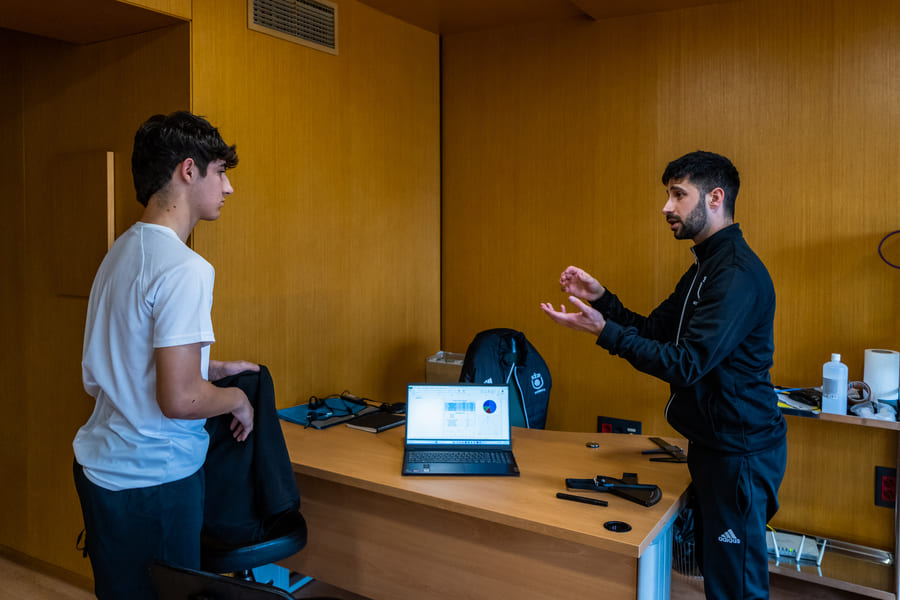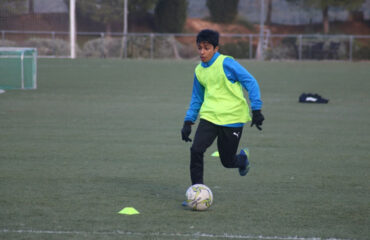In the world of football, important matches pose as much a physical challenge as a mental one. Whether it’s a final, a derby, or a decisive promotion game, emotional and psychological pressure can seriously affect a player’s performance—even if they’re technically and tactically well-prepared.
These are the moments when mental strength comes into play, a factor that many clubs still underestimate. However, SIA Academy understand that developing a complete footballer must include mental preparation to compete with balance under pressure.
Table of contents
What is pressure in football?
Pressure can be defined as the emotional tension that arises when something important is at stake and the player feels their abilities are being judged, criticized, or tested. It can come from different sources:
- Expectations from the coaching staff and teammates.
- Fans and media environment.
- The importance of the result for the season.
- Fear of failure or personal mistakes.
This kind of pressure, if not trained, can lead to mental blocks, poor decisions, or mistakes at crucial moments in the game.

How SIA Academy works on managing pressure
SIA Academy is a high-performance academy located in Valencia, Spain, recognized internationally for its comprehensive approach. Its methodology combines technical, tactical, physical, and psychological training, with a strong commitment to preparing players for real high-stakes situations.
Let’s take a look at how they address the mental and emotional side of the game.
1. Structured psychological training
The academy works with sports psychology professionals who conduct both individual and group sessions with players. The goal is to develop mental tools that allow them to compete with clarity, confidence, and emotional control.
Among the techniques used are:
- Positive visualization: imagining successful scenarios to mentally prepare for real moments of pressure.
- Breathing control and relaxation: simple yet effective tools to reduce anxiety in high-tension moments.
- Mindfulness and full concentration: training attention to stay focused on the present, avoiding distractions like the scoreboard, the crowd, or the outcome.
By integrating these exercises into regular training, players become more aware of their mental state and know how to manage it during critical situations.
2. Simulation of real pressure scenarios
Another powerful tool at SIA Academy is the use of simulations during training. Realistic match situations are recreated, such as last-minute penalties, playing with one man down, or making split-second decisions under time pressure.
This practice allows players to become familiar with competitive stress and learn to stay calm while acting effectively.
The more frequently they face this type of scenario, the less real-match pressure will affect them.
3. Culture of error and learning
One of the most valuable pillars of SIA Academy’s philosophy is its positive approach to mistakes. Instead of punishing or highlighting them as weaknesses, they’re treated as a natural part of learning and growth.
Players understand that making mistakes is part of the journey toward improvement, which significantly reduces the fear of failure and boosts personal confidence.
This approach encourages a growth mindset that allows players to take risks, make bold decisions, and maintain a positive attitude in the face of adversity.

Practical keys for any footballer
Beyond being in a high-performance academy, any player can work on their mental strength through accessible habits and techniques. Here are a few tips that make a difference:
1. Prepare your mind as much as your body
Train your mindset with the same discipline you apply to your physical and technical work. Dedicate time to breathing exercises, visualization, and mental reflection before matches.
2. Create routines that center you
Many professional players have pre-match rituals: listening to a specific song, doing mindful stretches, or repeating motivational phrases.
Having a routine helps you focus and enter a flow state before competing.
3. Trust your training
When a decisive moment comes, the best thing you can do is trust everything you’ve trained for. Preparation is what supports you when nerves appear.
4. Focus on the present
Pressure often comes from thinking about the result, or what might happen if you win or lose.
The key is to focus on the next action: a pass, a tackle, a shot.
5. Speak positively to yourself
Your internal dialogue directly influences your performance. Phrases like “I can’t mess up” create fear. Instead, telling yourself “I’m ready” or “I’ve got this” builds confidence and mental strength.
Pressure in important matches isn’t an enemy—it’s another part of the game. Knowing how to manage it is what separates average players from those who rise in crucial moments. SIA Academy understands this and works from the foundation to develop complete footballers, capable of performing at their best under any circumstance.
Facing pressure is not about luck or personality—it’s about preparation. And like everything in football, it can be trained.






